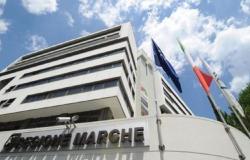After the provinces of Belluno, Treviso, Venice, Verona and Vicenza, the service has also arrived in the territories of Padua and RovigoCUT”. This free social transport service is aimed at people in a state of fragility or social hardship, even temporarily, guaranteeing them access to care, visits, recreational, social or physical activities. Activated on 1 November 2023 thanks to funding from the Veneto Region and the coordination of the CSV of Padua and Rovigo, STACCO has already recorded a significant impact.
In just seven months, 623 users have used the service, making 2,843 transports in 51 municipalities of the two provinces. Volunteers from 30 member associations traveled a total of 109,634 kilometres.
In the province of Rovigo, 20 associations cover the service in 22 Municipalities, using 36 vehicles: 21 cars, 7 vans, 7 vehicles with platforms and one equipped car. From November 1st to April 30th, 1,679 transports were carried out for 423 users, covering a total of 74,013 kilometres.
For the province of Padua, 10 associations provide the service in 29 Municipalities, with 22 vehicles: 13 cars, 2 vans, 5 vehicles with platforms and 2 equipped cars. In the same period, 1,164 transports were carried out for 200 users, covering 35,621 kilometres.
In total, 3,448 requests for social transport were received, with 2,843 positive responses. The discrepancy is due not so much to the lack of volunteers, but to the scarcity of available means, as underlined by Marinella Mantovani, vice president of the CSV. Among the beneficiaries, 61% are women and 39% men, with 87% of users aged between 69 and 90. 76% were in conditions of social fragility, 8% economically, 7% with physical disability and 9% with mental disability. 59% of the requests concerned transport for medical visits, 31% for therapies and 10% for other reasons.
“Our company is also experiencing an objective difficulty regarding the issue of social transport”, states the director of social and health services Marcello Mazzo, which underlines how «the added value of this type of service is also that of guaranteeing opportunities for socialization, with numbers that are already significant in less than a year. The activation of this service was long awaited, thanks to the volunteers, as well as to the Veneto Region for the funding obtained.”





